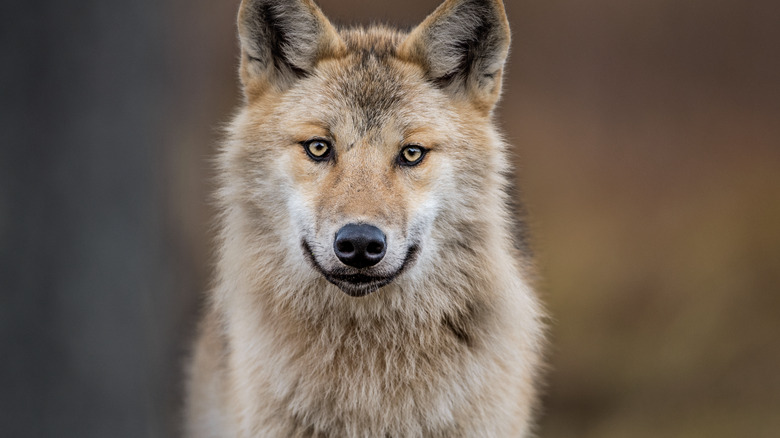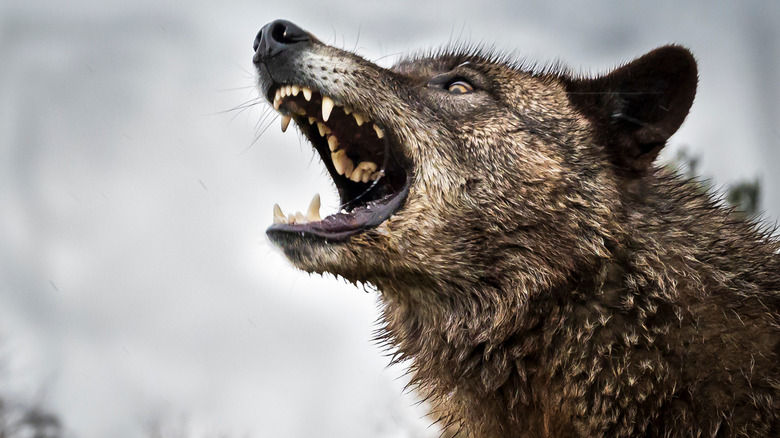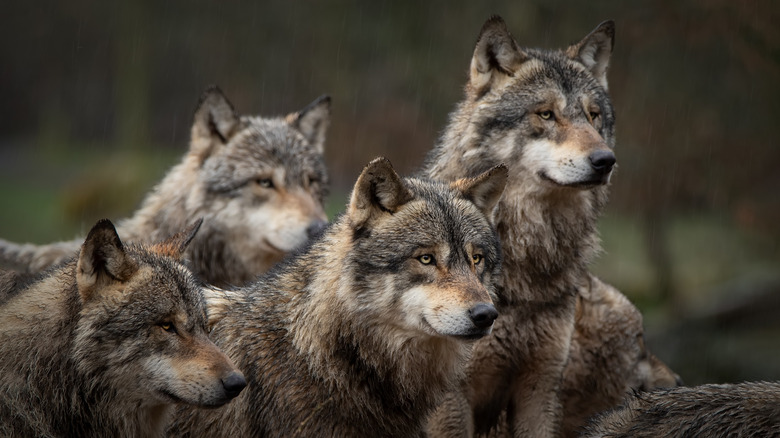Alpha Male Vs. Beta Male: What's The Difference?
We've all heard the tropes about "alpha males" who lead the pack and "beta males" who follow. Alphas are generally considered dominant, strong, and hyper-masculine, while beta males are considered weaker and submissive. If you look it up online, you are likely to come upon articles stating that alphas exude confidence and ownership of their lives and get any woman they want (via The Difference Between). But what if we told you that the idea of alpha males is considerably outdated and no longer even considered a real thing by experts on the animal the terms came from: wolves?
It's true. The term "alpha male" was first coined in the field of ethology, which is the study of animal behavior, before it became popularized in pop culture (via Wolf.org). It first emerged in a study from the 1940's in which Rudolph Schenkel watched wolves in captivity and then wrote a paper titled "Expressions Studies on Wolves." But the International Wolf Center's founder, Dr. L. David Mech, says that this study, "gave rise to the now outmoded notion of alpha wolves. That concept was based on the old idea that wolves fight within a pack to gain dominance and that the winner is the 'alpha' wolf."
Where the term alpha male came from
Interestingly, Mech himself is partly responsible for the term and idea of the alpha make making its way into popular culture (via Wolf.org). He says that his book, called, "The Wolf: Ecology and Behavior of an Endangered Species," which was published in 1970 and is still in print, discussed that original research paper from the 40's as well as his own research on captive wolves (via Wolf.org). However, as his research progressed through the years, he says he lodged "numerous pleas to the publisher to stop publishing it" because he found that a great deal of the information was inaccurate. He says. "Although most of the book's info is still accurate, much is outdated. We have learned more about wolves in the last 40 years than in all of previous history."
And what has that more recent research proven? In short: that aggressive behavior, in which male wolves fight for a dominant position, is only see in captivity. In other words, when in their natural habitat, wolves do not pit their strength, aggressiveness, and "masculinity" against one another for dominance. Instead, wolf packs, when left to their own devices, demonstrate a much more symbiotic, peaceful distribution of power and responsibility.
How wolves actually behave in the wild
In the wild, wolf packs do not consist of a bunch of unrelated wolves fighting for who leads (via Wolf Haven). Instead, most wolf packs are led by the pair of adult wolves that mated and created the rest of the pack. Usually, the "lower ranking" members of the pack are simply the pups, and they are likely either babies or adolescent wolves. As such, they naturally defer to their parents. Once wolves are about four years old, they may start their own packs by breeding.
For this reason, the terms "alpha male" and "alpha female" have been retired by animal experts. Instead, the male and female leaders of wolf packs are called, simply, the "breeding male" and "breeding female," or "male parent" and "female parent" (via Wolf.org). Experts believe the aggressive "alpha male" behavior seen in the captive wolves can be attributed to the stress and unnatural man-made "packs" of the captivity itself.
So, next time someone wants to use the term "alpha male" or "beta male" to either brag or put someone else down, maybe they need to be educated.


